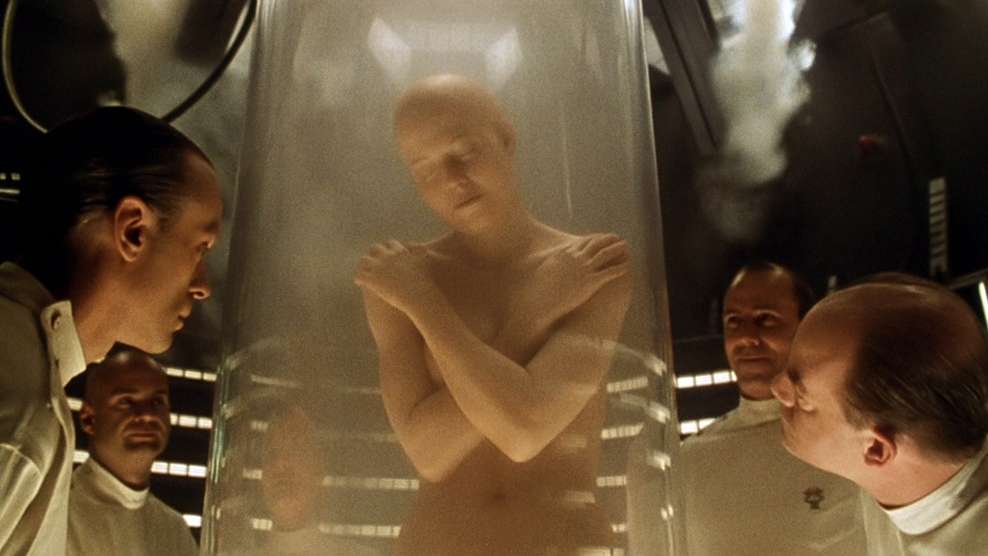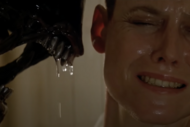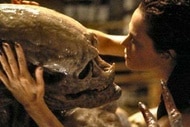Create a free profile to get unlimited access to exclusive videos, sweepstakes, and more!
This Week in Genre History: Alien: Resurrection did not, in fact, resurrect the franchise

Welcome to This Week in Genre History, where Tim Grierson and Will Leitch, the hosts of the Grierson & Leitch podcast, take turns looking back at the world’s greatest, craziest, most infamous genre movies on the week that they were first released.
There is a grand tradition, in the world of film franchises, of the Get Back on Track sequel. You’ve seen them before. The franchise arc generally goes like this, with minor variations:
- Groundbreaking Original, which is a huge hit.
- Bigger Sequel, which expands on ideas of the original film and paints them on a larger canvas.
- Dud Sequel, in which, perhaps out of ambition or perhaps out of creative stasis, the franchise begins to lose luster, prestige, and, most important, money. (Note: This movie does not necessarily have to be bad. Just different.)
- Get Back on Track Sequel, also known as the Back to Basics Sequel, in which the franchise attempts to return to its roots and remind its fans why they were attracted to it in the first place.
In the world of Dud Sequels, you’ve got your The Hangover Part II, your Batman Returns, your Book of Shadows: Blair Witch 2 ... your Alien 3. And if you’re looking for a classic Get Back on Track sequel, look no further than Alien: Resurrection, which was released on Nov. 26, 1997. Alien 3, directed by a little-known music video director named David Fincher, was widely seen as a disaster, not helped by the fact that it killed off Sigourney Weaver’s Ripley at the end. Alien: Resurrection was meant to correct that movie’s failings. But the thing is: The Get Back on Track sequel has a habit of becoming the Dud Sequel. This one sure turned out that way.
Why was it a big deal at the time? The one thing that seemed certain after Alien 3 was that the era of Ripley was over. She did, after all, die at the end of that film, and there isn’t much room for any other interpretation left.
So, for Weaver to get involved in a fourth film, and for the ads to primarily focus on her, there had to be some sort of twist. This one: She’s a clone! She’s actually Ripley 8, and she has some Xenomorph blood in her, which allows her to do all sorts of Xenomorph things like be super strong and have her blood eat through metal. But don’t worry: She still has the old Ripley’s memories, somehow, so it’s almost like the old Ripley. It’s almost like the old Ripley didn’t die at all.
Add in a whole new crew of mercenaries coming onto the ship, including Ron Perlman, Dan Hedaya, and, uh, Winona Ryder, and hey, it’s almost like the old movies, right? The ones you liked?
I’m not imagining this, by the way: People were hopeful like this at the time. Weaver and Ryder were on the cover of Entertainment Weekly together (trust me, this used to be a very huge deal), and the accompanying story argued that “a major Hollywood franchise was nearly destroyed” because Alien 3 was so “depressing.” This was the movie that would rev it all back up again.
What was the impact? The thing about the Get Back on Track Sequel is that audiences have a way of smelling a rat: After all, it had only been five years since the Alien sequel that had supposedly killed off Ripley once and for all. Why is she back exactly? The reason she’s back, of course, is that the producers were trying to fix the franchise after the mess of the third film. It was pretty obvious from the ads, too, which is probably a reason audiences very much stayed away. But for what it’s worth, critics were skeptical too. Roger Ebert was particularly harsh, writing, “This is a series whose inspiration has come, gone, and been forgotten” and saying “artistically, the film will have no impact at all.” The film actually got worse reviews than Alien 3 did.
And for all the talk of the financial disappointment of that film, audiences immediately shrugged their shoulders even more at Alien: Resurrection. It finished second at the box office the week it opened, behind the Robin Williams-starring Flubber, bringing in only $16 million. It fell on its face even more after that, ending up with only $48 million, easily the lowest-grossing film in the whole franchise. All the gloss put on it, the new crew, the new Ripley, the addition of a young star like Ryder, none of it worked. The thing about trying to make something new remind you of something old is that it makes the thing that’s supposed to be new... feel really old. Audiences felt like they’d seen this movie before. So they skipped it.
Has it held up? Director Jean-Pierre Jeunet had made Delicatessen and City of Lost Children, and Alien: Resurrection shares those film’s visual splendor: It might not be fun to follow the plot of the film, but it’s always a feast to watch the movie go by. But everything else about Alien: Resurrection is familiar, and once the movie resolves its inherent conflict — is Ripley with the humans, or with the aliens? — it loses anything that might have been unique about it. A movie in which Ripley turns on the humans might have been fun. But Alien: Resurrection does not have the courage of those convictions.
Thus, it flopped, and, as it turned out, that was the end of Ripley and Sigourney Weaver with this franchise. The Back on Track film failed in its primary mission, and it nearly ended up killing the franchise. Fortunately, the Alien films had one more arrow in their quiver, the last-ditch franchise-rescuer: The Reboot. It would take 15 years, and it wouldn’t have anything to do with Ripley. But with Prometheus, Ridley Scott’s return to the franchise he created, they’d keep the flame alive. Fittingly, Scott’s version basically expands the canvas to become, essentially, an Alien Cinematic Universe, in which the people don’t even matter anymore: It’s just the aliens.
That may have run out of gas with Promentheus’ own sequel, 2017’s Alien: Covenant, which, also directed by Scott, wasn’t a bad movie but didn’t make as much money as everyone had hoped. But worry not: They’ll try again. You can kill a Xenomorph. But you can’t kill a franchise brand.
Will Leitch is the co-host of The Grierson & Leitch Podcast, where he and Tim Grierson review films old and new. Follow them on Twitter or visit their site.














